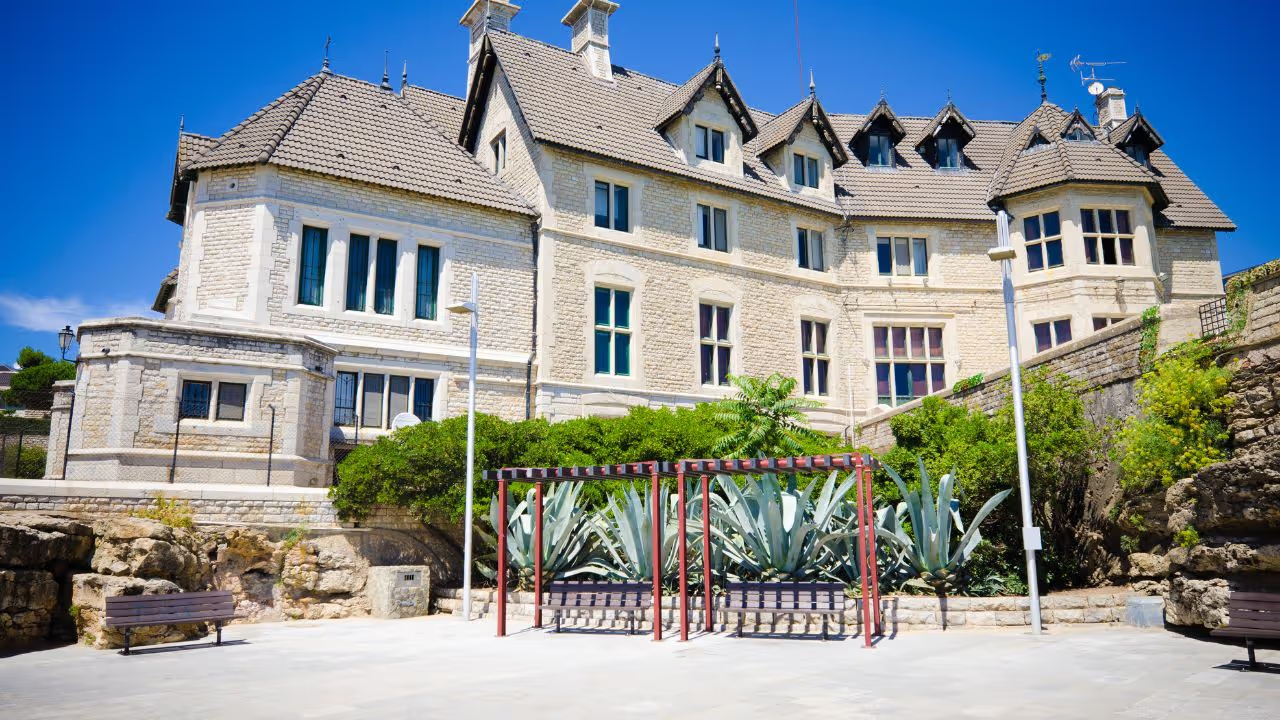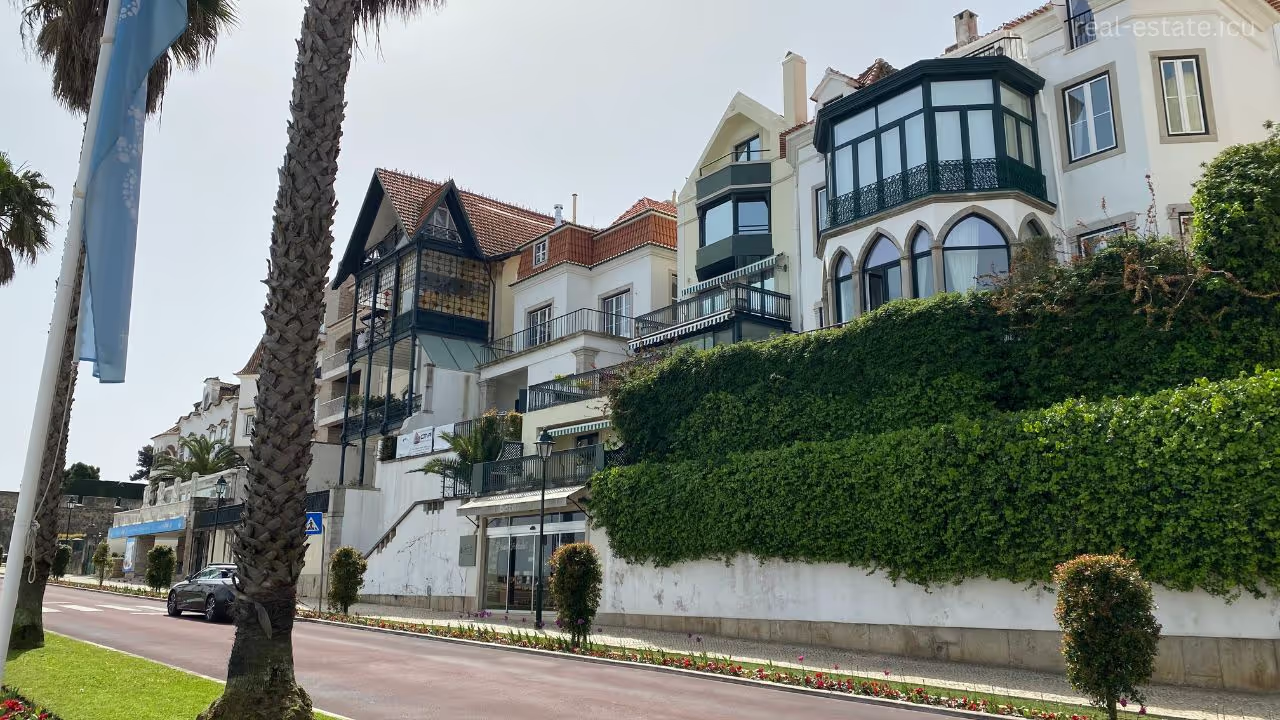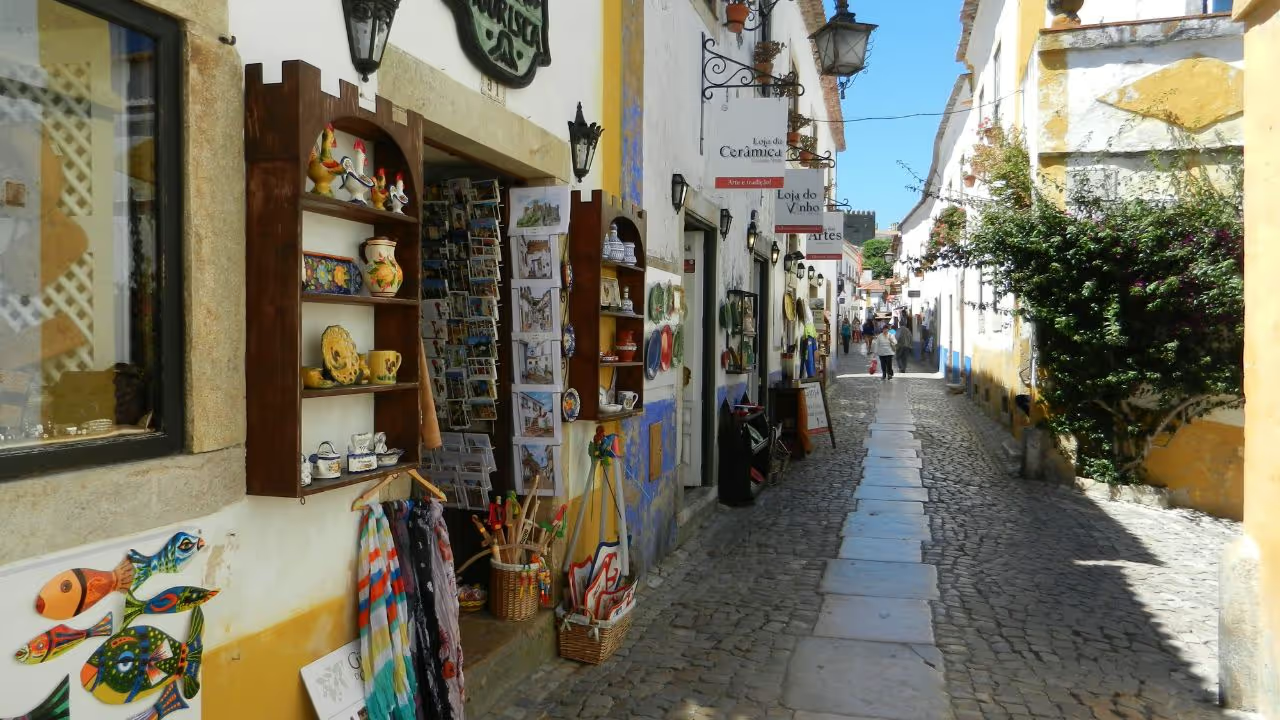Buy Property in Cascais to Invest

Cascais has emerged as a prime spot for real estate investors. About 30 minutes from Lisbon, it pairs coastal charm with solid market fundamentals. Below is an SEO-optimized guide with five main sections (~300–500 words each), varied sentence lengths, small colloquial slips, relevant internal links, outbound citations, lists, tables, and FAQs at the end.
1. Why Invest in Cascais Real Estate?
Cascais stands out for several reasons. First, its location on the Lisbon Coast means easy access to the capital’s business hubs while offering a seaside lifestyle. Over the past decade, property values here have risen steadily. For instance, average prices in the Lisbon metro area hover around €4,340/m² in Lisbon and about €4,053/m² in Cascais, reflecting its premium status (portugalhomes.com). Some sources note asking prices closer to €7,260/m² in prime spots, underlining high demand (portugalbuyersagent.com).
Year-round rental demand is strong. Digital nomads, expats, retirees, and holidaymakers seek stays here. Short-term rentals in Cascais report occupancy rates around 71% and attractive average daily rates, especially during summer (portugalbuyersagent.com). Long-term rentals also perform well: proximity to international schools, good transport links to Lisbon, and quality of life factors draw professionals and families seeking stability.
Tax incentives add appeal. Non-Habitual Resident (NHR) regimes can benefit investors planning to reside or draw foreign income. Golden Visa routes have evolved, but alternatives like fund-based investment still exist; always check current rules. Portugal’s political stability and transparent property laws further reassure foreign buyers: there are no restrictions on foreigners owning property.
Lifestyle factors matter too. Cascais offers beaches, golf courses, cultural events, and international schools. Safety and infrastructure rank high compared to many European coastal towns. These attract top-tier tenants or owner-occupiers, supporting both short- and long-term rental strategies.
Internal links guide deeper: explore Buy to Invest services for tailored advice. Learn about living costs to budget operations. For legal and fiscal steps, see Documents & Taxation. And to navigate the process, consult Buying in Cascais guide.
Outbound reading: broader Portugal forecast sees ~5.8% market growth in 2025, with Lisbon metro (including Cascais) leading (portugalpathways.io). Cascais’s resilience to economic swings makes it a solid long-term play.

2. Investment Opportunities in Cascais
Cascais offers varied strategies. Below are common avenues:
1. Short-Term Rentals
Properties near Cascais Central, Guia, or Estoril beaches suit holiday lets. High season (June–September) sees peak occupancy; shoulder seasons are also busy thanks to mild weather and events in Lisbon. Typical occupancy ~71%, ADR around €130–€200+ depending on size and location (portugalbuyersagent.com). Hosts must register for Alojamento Local and follow local rules (see Landlord guide). Management costs (cleaning, utilities, platform fees) eat into returns, but gross yields often exceed long-term rents. A hybrid model—short-term in high season, long-term off-season—can stabilize income.
2. Long-Term Rentals
Near international schools and transport hubs (train to Lisbon), apartments and smaller homes fetch reliable monthly income. Rental yields for 1-bedroom units in Cascais average 4–6% gross annually (globalpropertyguide.com). Demand from expats working remotely or in Lisbon keeps occupancy high. Maintenance and management costs lower than short-term, but lock-in periods must be considered.
3. Luxury Renovations
Older villas or traditional homes in suburbs like Birre or Alcabideche can be revamped into high-end residences. Renovation projects—subject to planning permissions—may yield significant margins on resale or premium rental rates. Factor in permit timelines and architect/builder fees. For guidance, link with Vacation Rental Services if intending short-term lets, or local architects for conversion to luxury living.
4. Off-Plan Developments
New builds in gated communities or modern condo blocks with sea views appeal to buyers wanting turnkey properties. Developers sometimes offer pre-construction deals at slightly lower rates, though prices have been rising. Capital growth potential is solid given limited coastal land. Check developer reputation and contract details; VAT often included for new units.
5. Mixed-Use or Commercial
Though less common, small commercial spaces (cafés, studios) near high-footfall areas can be an alternative. However, these require deeper market study and different licensing.
Comparing options: use a table for quick glance:
| Strategy | Pros | Cons |
|---|---|---|
| Short-Term Rentals | High gross yield, flexible pricing | Higher costs, regulatory compliance |
| Long-Term Rentals | Steady income, lower management hassle | Lower yield vs peak-season short lets |
| Renovations | Potential high upside on sale/rent | Time-consuming, permit risk |
| Off-Plan | New amenities, lower maintenance | Market timing risk, payment schedules |
| Mixed-Use | Diversification | Specialized management, licensing |
Deciding depends on budget, risk tolerance, and time horizon. For deeper analysis, consult case studies or engage with our Buy to Invest service.
3. Understanding Market Trends and Pricing
Knowing current metrics aids smart choices. In early 2025, Cascais remains among top Lisbon metro markets. Average asking price in Cascais hovers around €4,053/m², with prime areas nearing €7,000+ per m² (portugalhomes.com). Year-on-year growth rates in Cascais often outpace national averages, reflecting its desirability.
Rental yields vary by property type: studios can yield near 5.78% gross; 1-bed around 4% gross; 2-bed ~3.8% gross annually in Cascais (globalpropertyguide.com). Short-term yields can exceed those figures in peak months, but seasonality matters. Occupancy for holiday lets peaks at ~80% in summer, drops to ~40% in winter (airroi.com).
Demographics: Cascais draws both Portuguese and international buyers. Post-pandemic, remote work trends have increased demand for coastal properties. Younger professionals and retirees alike seek second homes or relocations. Supply remains constrained near the coast, pushing prices up steadily.
Outbound trend data: PwC ranks Lisbon metro highly for investment, benefiting Cascais indirectly (theportugalnews.com). Broader forecasts see Portugal’s market growing ~5.8% in 2025 (portugalpathways.io). However, global economic shifts could slow growth; Cascais’s niche as a lifestyle destination adds resilience.
Tracking indicators:
- Price per m² trends: use local portals and reports. Monitor neighborhood-level shifts: Cascais Central vs suburbs like Alcabideche.
- Rental platform analytics: tools like AirDNA or Airbtics show occupancy, ADR, seasonality patterns.
- New developments: pipeline of off-plan projects signals where future supply lies.
- Regulatory updates: changes in Alojamento Local licensing or tax regimes affect returns.
Internal links: for detailed fiscal context, see Documents & Taxation. For neighbourhood comparisons, explore Monte Estoril or Estoril. For cost-of-living insights helping rental pricing, see Cost of Living.
4. Buying Process and Fiscal Considerations for Investors
Investors must follow Portugal’s purchase steps and account for fiscal obligations:
- NIF and Bank Account: Obtain Portuguese tax number (NIF)—necessary for contracts. Open local bank account for transfers and potential mortgage.
- Engage Buyer’s Agent: A buyer’s agent familiar with Cascais surfaces off-market deals, advises on fair pricing, and negotiates terms. See Why a Buyer Agent.
- Legal Due Diligence: Hire a local lawyer to check title deeds at Conservatória do Registo Predial, confirm no liens, and verify zoning/planning compliance with Câmara Municipal. For renovation projects, validate permit feasibility.
- Financing: Portuguese banks lend to non-residents up to ~60–70% LTV. Compare terms; consider currency risk if income abroad. Mortgage pre-approval strengthens offers.
- Promissory Contract (CPCV): Deposit (~10–30%) locks in agreement, with conditions for financing or inspections. Lawyer reviews terms to protect your interests.
- Tax Calculations: IMT (progressive up to ~8%), stamp duty (
0.8%), notary and registration fees (€1,000–€3,000). New builds may include VAT (23%). Use Documents & Taxation for detailed steps. - Final Deed and Registration: Pay remaining balance, taxes, and sign at notary. Lawyer registers property in your name.
- Post-Purchase Registrations: For rentals, register Alojamento Local early. Update tax authority for IMI billing. Set up utilities and insurance.

Fiscal planning:
- IMI and AIMI: Annual property tax ~0.3–0.45% of cadastral value in Cascais; high-value portfolios may incur AIMI above thresholds.
- Rental Income Tax: Non-residents taxed at flat 28% on rental income; residents at progressive rates after deductions. Factor into yield calculations.
- Capital Gains Tax: On resale, 50% of gain added to income for residents; flat 28% for non-residents. Primary residence reinvestment rules may apply if you relocate to Portugal.
- Tax Regimes: If you plan relocation: NHR or new Incentivised Tax Status can offer benefits, but timing is key. Even pure investors should be aware of potential tax residency if spending time locally.
- Budget for Renovation: Factor building permit fees, architect/engineer costs, contractor quotes, and contingency (~10–15%). Sea air impacts maintenance budgets over time.
Internal links: for managing purchase, see Manage Purchase. For investment setup, Buy to Invest. For landlord-specific fiscal steps, Landlord guide. Consult legal/tax advisors via Contact us.
Outbound: Portuguese real estate law overview: Wikipedia: Real estate in Portugal (youroverseashome.com).
5. Working with Local Experts & Post-Purchase Management
Smooth investment demands local partnerships and ongoing oversight:

- Buyer’s Agent & Advisory Team: Engage agents with Cascais track record. They coordinate viewings, negotiations, and liaise with lawyers and banks.
- Legal and Fiscal Advisors: A local lawyer handles due diligence and contracts. Tax advisors manage filings (IMI, rental income, capital gains) and advise on NHR or other regimes.
- Property Management: For rentals, decide self-manage vs professional management. Management firms handle guest communications, cleaning, maintenance, and maximize occupancy via dynamic pricing tools. Fees typically 15–25% of revenue.
- Renovation and Maintenance: Post-purchase, schedule inspections and upkeep: pool servicing, garden, façade maintenance against sea air. For renovations, hire licensed architects/builders; track permits and budgets closely.
- Insurance and Safety: Secure appropriate insurance covering liability, property damage, and rental use. Install safety features (smoke detectors, first aid kits) to comply with AL standards.
- Financial Monitoring: Maintain accounting records of income and expenses. Review performance metrics: occupancy rates, ADR vs costs, net yields. Adjust strategy: e.g., shift between short and long-term rentals based on season or market.
- Market Monitoring: Stay updated on Cascais market shifts—new developments, regulatory changes, tax updates. Use agent networks or subscribe to market reports. Early alerts help decide when to sell, refinance, or expand portfolio.
- Community and Networking: Build relationships with local service providers (cleaners, contractors), and other investors to share insights. Join local real estate or expat groups for informal tips.
- Exit Strategies: Even on purchase, consider potential resale or repurposing (e.g., convert short-term rental to long-term lease). Good advisors help align exit timing with market peaks.
- Technology Tools: Use property management software, dynamic pricing platforms, and digital documentation storage. Remote monitoring (smart locks, cameras) assists if you’re abroad.
- Internal Links: For property management services, see Vacation Rental Services. To hire experts, visit team profiles and testimonials to vet providers.
- Small Tip: Keep a calendar of key dates: IMI deadline, maintenance tasks, permit renewals. Maintain emergency contacts locally for quick responses.
Frequently Asked Questions
-
What is the average price per square metre in Cascais? Around €4,053/m² on average, with prime areas closer to €7,000+ per m² in 2025 (portugalhomes.com).
-
What rental yields can investors expect? Long-term yields around 4–6% gross for apartments; studios may reach ~5.8%. Short-term yields can exceed these in peak seasons but incur higher costs (globalpropertyguide.com).
-
How to start investing in Cascais from abroad? Obtain NIF remotely with fiscal representative, open a Portuguese bank account (some banks allow remote initiation), engage a buyer’s agent locally, and plan visits or virtual tours. Legal and tax advisors handle due diligence.
-
Do foreigners face ownership restrictions? No. Non-residents can own 100% of property. Mortgages are available, though LTV may be lower for non-residents (60–70%).
-
What taxes apply for investment properties? At purchase: IMT (0–8%), stamp duty (~0.8%), notary/registration fees. Ongoing: IMI (~0.3–0.45% of cadastral value), AIMI for high-value portfolios, rental income tax (28% for non-residents), and capital gains tax on resale. Possible VAT on new builds (23%).
-
What neighbourhoods offer best investment potential? Cascais Central and Guia for short-term rentals; Estoril for luxury holiday lets; Birre or Alcabideche for villas with renovation potential; Monte Estoril for premium residences. Evaluate based on target tenant profile and budget.
-
How to handle Alojamento Local licensing? Register property with Câmara and tax authority, meet safety and building requirements, declare income. Use professional advice to ensure compliance and avoid fines.
-
Is the market still growing? Forecasts show continued growth (~5.8% nationwide, with Lisbon metro including Cascais leading) in 2025. However, monitor economic shifts. Cascais’s lifestyle appeal adds resilience.
-
Should I renovate or buy new? Renovations can yield high upside but require time, permits, and project management. Off-plan/new builds offer turnkey ease but may cost premium. Balance based on risk appetite and timeline.
-
How to choose local experts? Check Why a Buyer Agent for agent selection, review team-office profiles, and get referrals for lawyers and tax advisors. Transparent fees and proven Cascais experience matter.
 Buy
Buy  Buy
Buy  Buy
Buy 